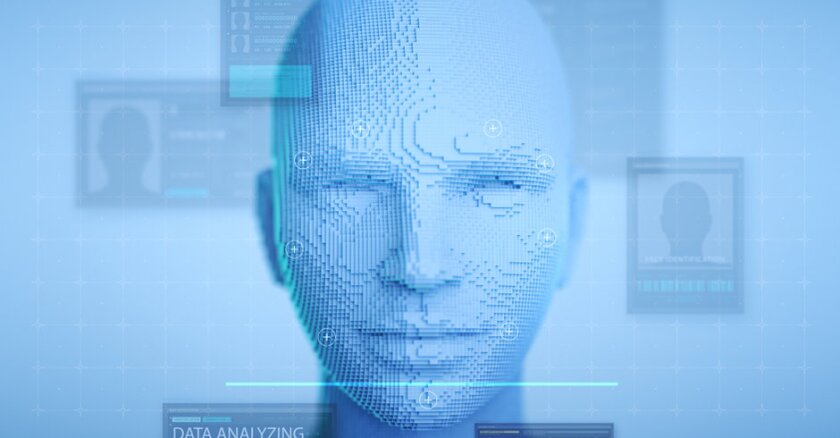The new law, which passed on a 6-0 vote, prohibits using the technology to investigate consensual sexual acts between adults, or violations of Louisiana's criminal abortion law. Yet at the 11th hour, the ordinance was shorn of its most potent provision requiring judicial approval for facial recognition searches.
The American Civil Liberties Union of Louisiana and dozens of members of the public supported the legislation, but even a council sponsor said she felt it doesn't go far enough to check police power.
"I don't think it's perfect yet, but I think it's better," said Council President Helena Moreno.
Second discussion in weeks
Moreno was out with COVID when a contentious debate over surveillance split the council on July 21.
In one corner was the lead sponsor, District D Council member Eugene Green, who said police need more tools to solve violent crimes. Green's legislation, which gained vocal support from Mayor LaToya Cantrell, peeled back a near-total ban on several surveillance technologies that the council passed in 2020.
Under Green's ordinance, which passed on a 4-2 vote, police may ask the Louisiana State Police to search their databases for face matches when they're investigating a specific list of violent crimes, including shootings, carjackings and rapes. Green said internal policies developed by the NOPD will ensure that police receive supervisor approval and exhaust other avenues of investigation.
Yet Council Vice President JP Morrell and District B Council member Lesli Harris said they feared the technology could be turned on people seeking abortions and members of the LGBTQ community. They offered an amendment requiring judicial approval of searches, which failed on a tie vote because of Moreno's absence.
Judges pushed back
This week's discussion proved less acrimonious. The new ordinance, sponsored by Moreno, Morrell and Harris, makes what was implicit explicit, by banning the use of the technology for investigations of abortions or consensual sex.
But the trio's proposal to require judicial approval of facial recognition searches was jettisoned hours before the meeting.
"We received a lot of pushback from the judges," said Moreno, who said Orleans Parish Criminal District Court judges were reluctant to take on a role they didn't fully understand.
In lieu of the original language, the council set up a "working group" to consider how the judiciary can serve as an "alternative secondary database" for filings about searches, although it doesn't specifically mention judicial approval. Their report is due Sept. 30.
Morrell said he hopes the judges — or another outside entity — will agree to act as a watchdog. There must be, he said, "a mechanism where these affidavits will be stored, so that people who are using this technology can be held to account that they're doing it properly and without bias."
Chris Kaiser, advocacy director for the ACLU of Louisiana, said he hopes the discussion will produce tighter limits. The current legislation leaves it to police to write their own policies, he said.
" New Orleans residents have been very clear and consistent that the debate over surveillance technology is not over, and this needs to be a continued conversation," said Kaiser. "In our view, this ordinance is a necessary first step in that process."
Green took the opportunity to defend his original legislation, arguing that it tightened the use of surveillance technology by narrowing the use of search results from all city officials down to the NOPD.
Green said the 2020 ordinance limiting surveillance wasn't the total ban portrayed by its supporters, because investigators could still make use of information "if it was dropped into their lap."
Reports required
Under the new ordinance passed Thursday, the NOPD will be required to submit a quarterly report detailing the use of facial recognition, including the demographics of suspects. One of the major criticisms of facial recognition is that it is more likely to produce false matches for people of color.
In the reports, the NOPD must detail how often facial recognition searches produced matches. After a year, the department must perform a "detailed review" of the effectiveness of surveillance technologies.
Surveillance skeptics say that for all the hubbub over facial recognition, the NOPD has failed to show that it will effectively combat violent crime.
"We need data to show the effectiveness of facial recognition technology, which NOPD has not provided," said Harris.
Other police measures
The council also passed three other measures dealing with the NOPD and criminal justice. One motion directs the NOPD to work with the Civil Service Department to create more civilian positions to take some of the load off commissioned officers.
An ordinance requires newly promoted NOPD supervisors to serve a tour of duty in the Public Integrity Bureau, the department's internal affairs unit, which has drawn heavy criticism from officers.
Another ordinances requires the NOPD and a host of other criminal justice agencies to submit raw data to the council for analysis. Meanwhile, a resolution urges Police Superintendent Shaun Ferguson to work with the council's analysis firm, AH Datalytics, to speed up 911 dispatch times.
© 2022 The Times-Picayune | The New Orleans Advocate. Distributed by Tribune Content Agency, LLC.














